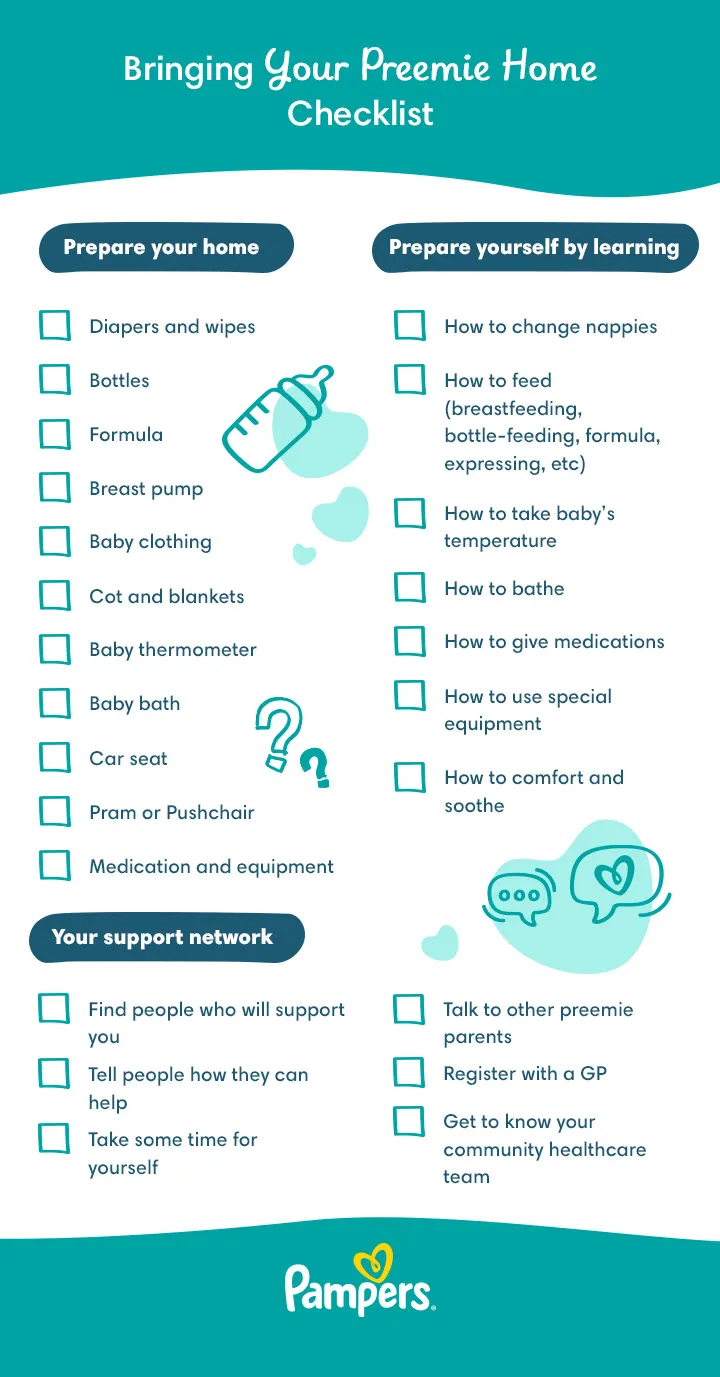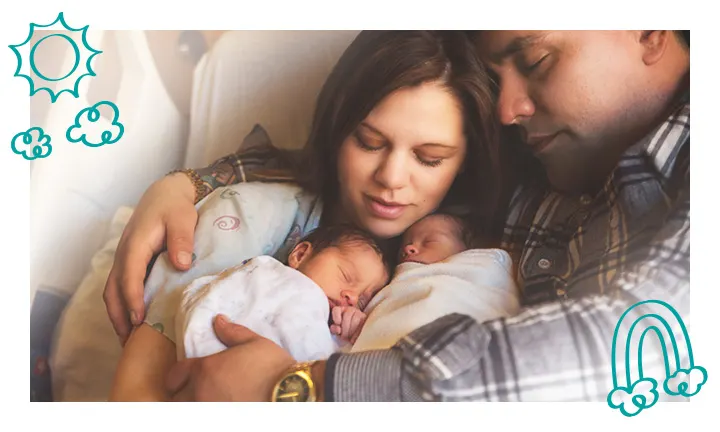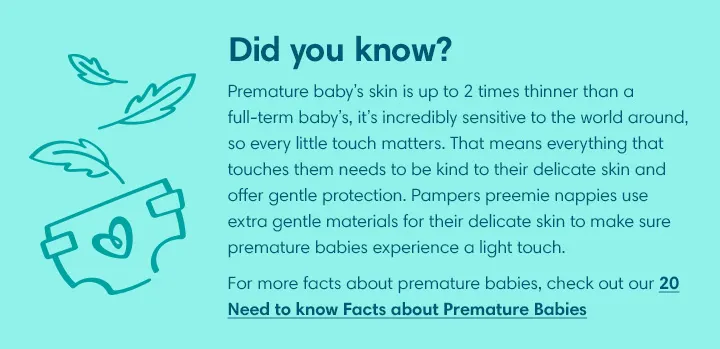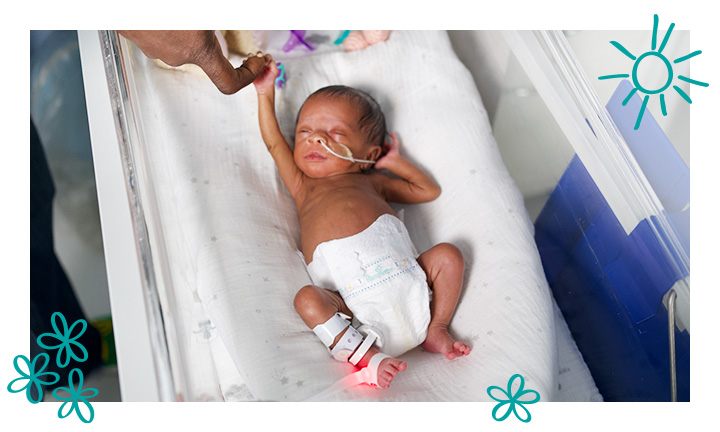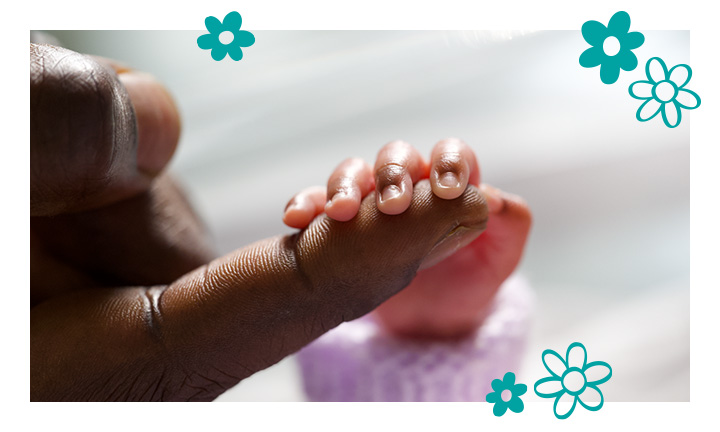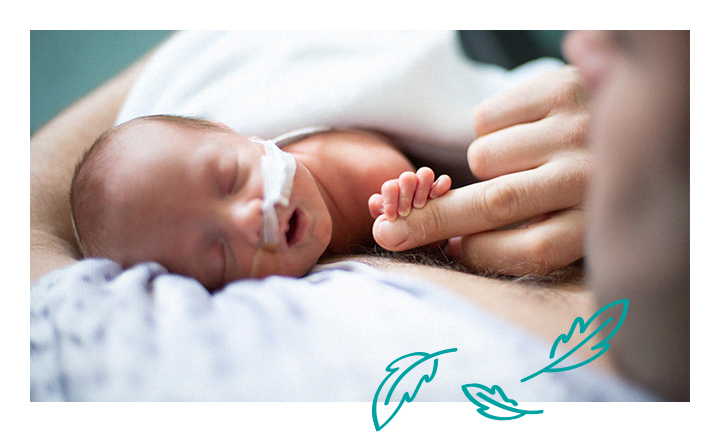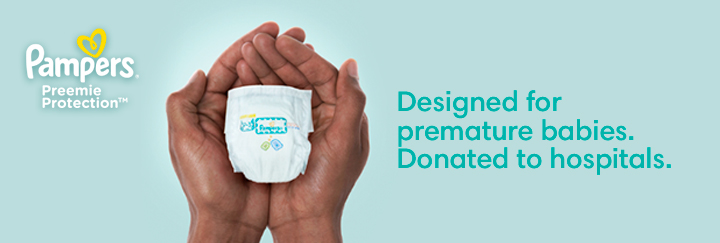
Caring For Your Premature baby at Home
As you transition from the neonatal care unit to caring for your preterm baby at home, you’ll have many exciting opportunities to bond with your baby. No matter how long you and your baby spent in the hospital, going home can be a much-anticipated moment. This article will provide an overview of how to prepare for bringing a preemie home, the support available, and advice from neonatal staff and parents of preemies.
When Can Your Premature Baby Go Home?
It’s natural to anxiously wait for that special day when your premature baby can go home. But when can premature babies go home? And what’s the earliest a preemie can go home? That usually depends on your baby’s individual situation, including how early they were born and any medical conditions they have. So, whether your baby was born at 29, 32, 35 weeks, etc., how long they stay in the hospital and NICU (Neonatal Intensive Care Unit) [Link to new article: NICU] depends on the progress they’re making.
Your neonatal care team will assess your baby’s progress. If your baby is medically well enough, they can regulate their own body temperature, and their weight and feeding are on track, the neonatal care team will discuss with you if your preemie is ready to go home or if they need more time in the hospital.
The Your healthcare team will also work closely with you to help prepare you for life at home with your premature baby. The team will involve you and your family in the daily care of your baby as much as possible while in the hospital. This helps enable you to be primary caregivers and partners with the neonatal care team – better preparing you for life at home with your baby.
Your neonatal care team may help you feel confident with the following:
Remember, the neonatal care staff will help you feel confident and knowledgeable about the above items and can answer any questions or concerns you may have.
Preparing to Bring your Premature Baby Home
Bringing home a preemie from NICU is an exciting time, but it can also overwhelming for many parents as they prepare for this transition. Here’s a list of some things that may help when preparing to leave the hospital:
Every person is different. Some parents leave and feel super empowered and ready to take it on – they can't wait to get home. But I’ve also had plenty of families in my career where the baby has been ready to go home and it's the family that's not ready.
Tierney Norris, NICU Nurse
How to Prepare? - Bringing Your Premature Baby Home Checklist
Take a look at our simple checklist to help you prepare when bringing a preemie home.
Adjusting to Life at Home With Your Premature Baby
Caring for a preterm baby at home may bring a lot of adjustments with it, and it’s normal to feel overwhelmed. Both you and your family might feel the emotions of bringing a preemie home and the challenges of caring for a baby. Read on to learn more about how you and your family can prepare for life at home with your new arrival, and some tips from preemie parents who’ve been in your shoes.
Mental Health
Having a premature baby can bring a range of emotions for you and your family, and it’s important to take care of your mental health. Getting extra emotional or physical support from your community healthcare team and those around you can help you cope with the arrival of a preemie.
In some cases, those feelings can be down to postnatal depression, which affects 1 in 10 new mums. It can also affect partners. Signs of postnatal depression may include:
If you or your partner are experiencing any of these symptoms or think you may have postnatal depression, contact your GP or healthcare team for support. Remember, postnatal depression is common and you’re not alone.
Siblings
Bringing a new baby into a home may be an exciting and fun time for your other children, but sometimes, it may cause feelings of jealousy or confusion with older siblings, especially when you factor in the added challenges that come with having a preemie. Your children may display challenging behaviour as they compete with your newborn for your attention, or experience feelings of fear and confusion due to everything that’s going on around them.
It may help to take time out of your day for some quality time with your newborn’s siblings and remind them that they’re just as important to you. You can even get them as involved as possible with your newborn – kids love to help! Perhaps talking to them about what’s happening and including them in your newborn’s daily routine may help, for example, changing nappies, bathing, etc.
Visitors
You may be excited to finally show off your new bundle of joy; however, your baby may still be settling into their new environment – and you’re still settling into a new routine. So, limiting visitors for a while, especially if your baby is still recovering, may help you both settle into life back at home.
It may also help to maintain a calm and peaceful environment for your baby to rest and recover, as well as reduce the risk of any infections entering your home. But of course, whenever you feel ready for visitors, go for it!
How to Take Care of Your Preemie at Home
When caring for your preterm baby at home, creating an environment conducive to sleep, finding a good routine and learning good practices during bath time and changing nappies has shown to benefit babies. You can also find our helpful step-by-step guides on bathing and changing nappies in our article, How to Care For Your Preterm Baby’s Skin.
Here are a few things to consider:
Tips From Preterm Parents
Every parent’s experience is different and each of them has faced challenges that they weren’t prepared for. These parents of premature babies wanted to share their own experiences to help and support other parents that are caring for a preemie at home and let them know that they’re not alone:
Liz gave birth to her daughter at 28 weeks. She discussed how the enormity of the situation really started to hit once she got home with her preemie, and how she hid her mental health struggles for a long time.
It is tough, and no one gets it unless you’ve been there. Listen to what your inner voice is telling you about how you are feeling and if you can’t accept it speak to someone you are close with or someone more objective like a GP. You have climbed the mountain of the neonatal unit but remember you are still climbing mountains as you bring up your little miracle.
Another mum, Jennifer, had her son at 33 weeks and 2 days. Her son stayed in NICU for 11 days. Jennifer recalls the support and the community of other parents in NICU, and she enjoyed the family events and having access to a forum for preemie parents.
Birth moms could use support and understanding that it’s okay when you need to ask for help, and when you need to step away.
Sherry gave birth to her daughter Jevonne at 29 weeks. Jevonne is now a fearless, determined and happy teenager, even through her struggles with cerebral palsy, epilepsy and learning difficulties. Her mother navigates life with her preemie as if it’s an adventure, because the best you can do is take it one day at a time, take care of yourself, and have hope and love in your life.
Even through the tangled schedules of appointments, therapies, school, work and carers, we find time for the silly stuff like games, face mask, pizza and movies night, afternoon teas, making silly videos and making dens. Because what is love without a bit of fun?
Follow-Up Appointments for Your Preterm Baby
After you return home with your baby, you may think the help ends there – but preterm care at home is still part of the journey and you’ll still receive support beyond the hospital!
Depending on your baby’s prematurity and progress, you may still attend follow-up appointments or receive visits from your health visitor or community healthcare team. Some babies may need more follow-up care post-discharge than others. This will be decided by your Neonatologist or Paediatrician during your initial follow-up appointment.
Here are some of the specialists your baby may see in their follow-up care and some of the appointments they may attend. Remember, these appointments are dependent on your baby’s needs:
Keep in mind that your GP, health visitor or community healthcare team are only a call away. They’ll continue to help you and give advice even when you’re back home.
FAQS AT A GLANCE
When bringing a preterm baby home, the neonatal care staff will work closely with you to help you prepare and feel confident when caring for your baby at home. From practical skills such as nappy changing, feeding and bathing to administering medication to your baby or using medical equipment; these are a few things you’ll learn all about.
This can also be a difficult time for many preemie parents, so it’s important to look after your mental health and ask for support when you need it.
The Bottom Line
Bringing your premature baby home is an exciting time for your family, but that doesn’t make it any less overwhelming. With the right preparation, resources and a whole lot of love, you can feel confident that you’re providing the best care for your baby. The most important thing to remember is that you are not alone. There are organisations, resources and support networks available to help you navigate this new experience. And remember, the most precious moments and memories can be made at home with your new baby.
Friends and families of babies born prematurely can now order their Pampers Preemie Protection Nappies online for free home delivery via www.pampers.co.uk. Pampers also continue to donate Pampers Preemie Protection nappies direct to hospitals, and via ASDA pharmacies (in-store only and subject to availability)
How We Wrote This Article The information in this article is based on the expert advice found in trusted medical and government sources, such as the National Health Service (NHS). You can find a full list of sources used for this article below. The content on this page should not replace professional medical advice. Always consult medical professionals for full diagnosis and treatment.
- Helping preterm babies sleep today for a better tomorrow, written in collaboration with Louisa Gossé, Developmental Neuroscientist
- How to care for preemie baby skin: In the NICU and at home, by Claire Campbell Neonatal Care Coordinator, NHS Northern Neonatal Network
- How to change a preemie baby’s diaper: In the NICU and at home, by Claire Campbell Neonatal Care Coordinator, NHS Northern Neonatal Network
- Preemies Insight Generation: North American Key Insights & Findings. October 2021
- Bliss. ‘If Your Baby is Unwell When You Go Home.’
- Bliss. ‘Preparing to go Home From The Neonatal Unit.’
- Bliss. ‘Seeking help for my mental health after the neonatal unit – Liz’s story.’
- Bliss. ‘When You Get Home From The Neonatal Unit.
- Child Car Seats. ‘Choosing Child Car Seats.’
- NHS. ‘Going Home – The Next Big Step.’
- NHS. ‘Postnatal Depression.’
- Pampers UK. ‘All About Premature Birth.’
- Tommys. ‘Taking Your Premature Baby Home.’
- Tommys. ‘Support You and Your Premature Baby at Home.’
Read more about Prematurity
Join Pampers Club and get:

